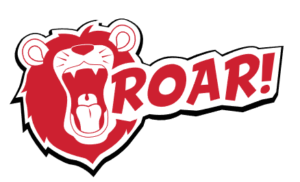Trauma’s Impact on Social Skills – Now What?

February 17, 2022 – I felt the sting as my girls, ages 7 and 7.5 headed out the door to catch the bus without as much as a wave. What was that? Were they blowing me off because I was short with them after the 5th reminder to brush their teeth? Or maybe they just don’t care that I have a good day? Are they even bonded to me? The truth of the matter is recognizing social cues and the needs of their caregivers just isn’t their thing. And here’s why….
Trauma has a serious impact on children’s normal developmental processes! This makes it really hard for our kids to not only recognize social cues, but also to understand them. As caregivers to children who come from hard places, we know that positive relationships and feeling connected is often what leads to their resilience and well-being as they navigate life beyond the trauma.
So how do we help??
Be patient! Social skills are complex and take time for all children to learn. For kids who have experienced trauma, this can be even more of a challenge. Take into consideration the overall developmental capacity of your child, and meet them where they’re at. It is common for development to slow down immensely, or even stop all together at the first traumatic experience that they can recall; the rebuilding of connection starts when they find a place of safety and have a caregiver meeting their day to day needs. There may have been a long period of time with no sense of stability, thus minimal developmental progression.
Understanding Emotions. A good place to begin is helping connect emotions to facial expression and body language. Photo books and magazines, or even your own face are great tools to help make this connection. Intentionally describe how facial and body expressions are tied to emotions. When we are mad we clench our fists, and our faces get red and hot.
Practice! Find ways throughout the day to practice; put on your detective gear and try to find happy/sad/mad/worried faces around the house. While watching their favorite tv show label emotions for them. Princess Anna is frowning; she seems really worried about her sister. I can tell that Owlette is happy because she is smiling and laughing with Catboy.
Praise! Giving specific praise not only helps our young people to create positive self-image and confidence as well as validating an appropriate social interaction. I felt so happy when you gave me a hug before you left for the school bus this morning, thank you!
Model Desired Behavior. We have worn out this phrase, but modeling really is one of the most natural and best ways to teach children healthy and appropriate social interactions. Be bold in your goodbyes when you leave to go run errands, or wish them a good day. For many of our kids, this isn’t something they’ve experienced from previous caregivers.
Capitalize on 1:1 time. Dedicate 5 minutes once or twice a week to each child in your home. This doesn’t have to be outside of your ordinary day! Choose your most manageable to accompany you to pick up groceries curbside. Or select some intentional books for required reading time, here’s a great reading list that will make time fly!
 While our kids may not be the best at showing it, they do care and they do try. My oldest brought home a small gift for me last week, straight from what she identified as the “War Store”. After some exploration we determined the gift was in fact from the “ROAR Store”: Respectful, On-Task, Act Safely, Responsible. I laughed to myself, what a great metaphor for the life we’ve chosen for ourselves…every day we wake up and go to War for ROAR.
While our kids may not be the best at showing it, they do care and they do try. My oldest brought home a small gift for me last week, straight from what she identified as the “War Store”. After some exploration we determined the gift was in fact from the “ROAR Store”: Respectful, On-Task, Act Safely, Responsible. I laughed to myself, what a great metaphor for the life we’ve chosen for ourselves…every day we wake up and go to War for ROAR.
One of the most challenging pieces of parenting is that it often feels like a one-way street. Finding the extra empathy and compassion to care for kids who have experienced trauma can be tricky. Take time out to join KPARC’s monthly Peer to Peer Support Groups, or give one of our advocates a call. We’d love to connect and help your family navigate challenging times.
Take care of one another, and give yourself grace…

Kristalle Hedrick, LMSW
Vice President of Kansas Programs, FosterAdopt Connect
Former Kansas Foster Parent, and Adoptive Parent
